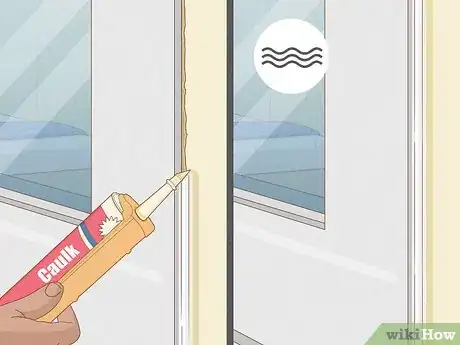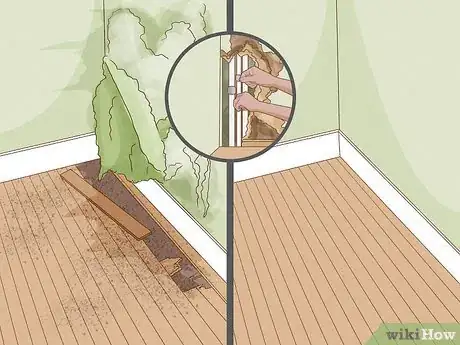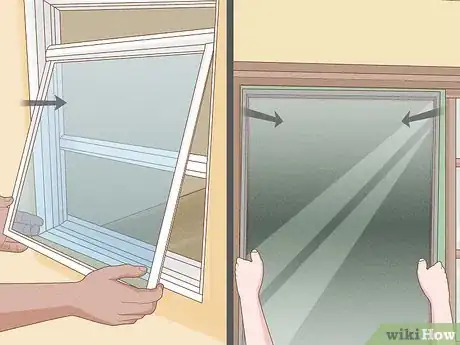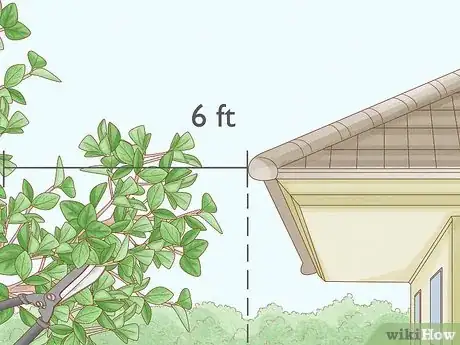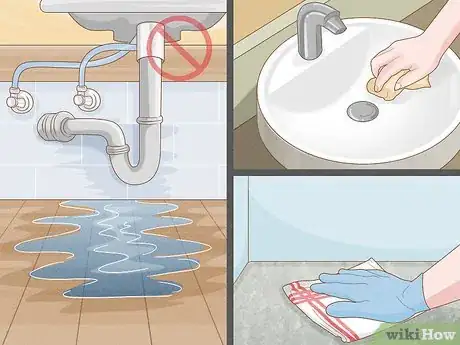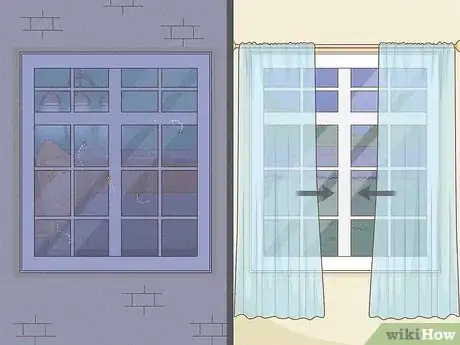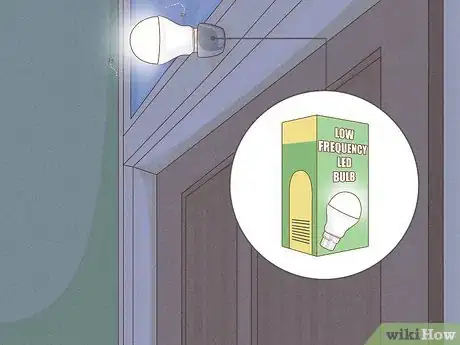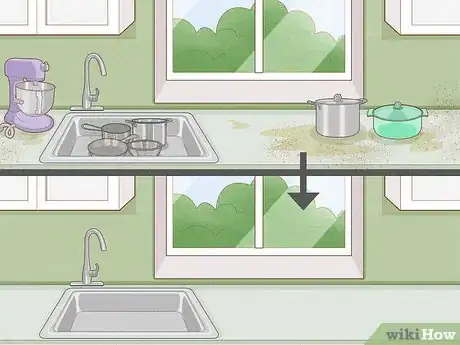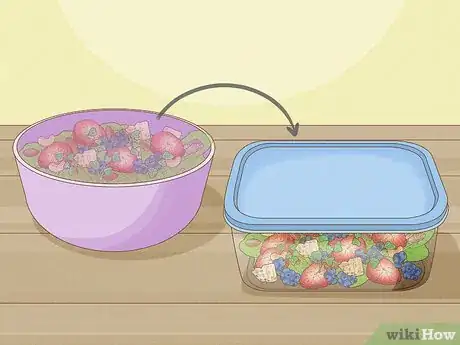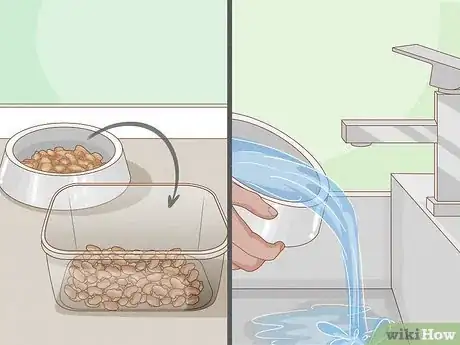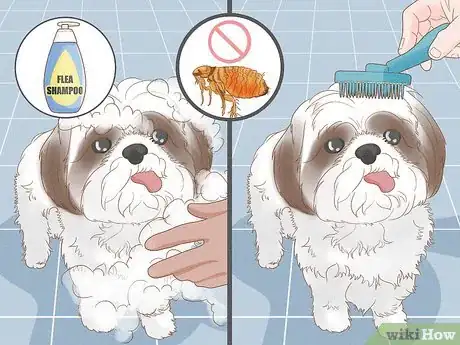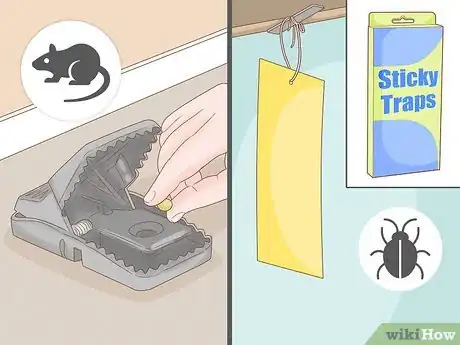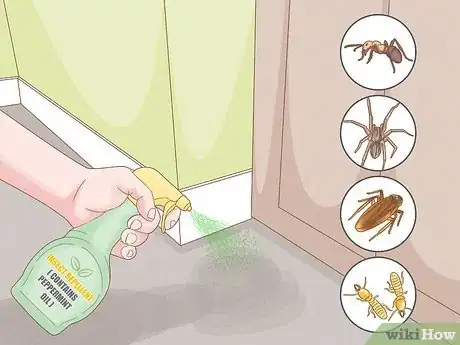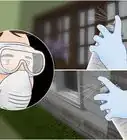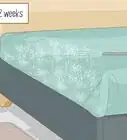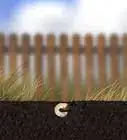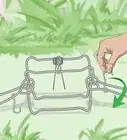This article was co-authored by Chris Parker and by wikiHow staff writer, Hannah Madden. Chris Parker is the Founder of Parker Eco Pest Control, a sustainable pest control service in Seattle, Washington. With over seven years of experience, Chris specializes in Integrated Pest Management and doesn’t use any chemicals for pest removal. He offers removal services for ants, rodents, fleas, spiders, wasps, and more. Chris is a certified Commercial Pesticide Applicator in Washington State and received his bachelor’s from the University of Washington.
This article has been viewed 12,751 times.
Finding pests in your home is never fun, and getting rid of pesky insects or rodents is no easy feat. If you want to stay away from harsh chemicals that could harm you or your family, look no further! In this article, we’ve detailed some ways you can get rid of pests without using any pesticides or insecticides. Keep in mind that natural methods work well for small infestations, but larger groups of pests might require a professional exterminator
This article is based on an interview with our certified Commercial Pesticide Applicator pest control specialist, Chris Parker. Check out the full interview here.
Steps
Seal off any entry points in your home.
-
This is the best way to keep pests out of your home in the first place. If you notice any gaps in your walls, around your windows, or around your doorways, seal them up with caulk and let them dry. Take a look at your crawlspace and attic, too—pests love to crawl into dark, secluded spots without a lot of human activity.[1] X Expert Source

Pest Control Specialist Expert Interview. 21 April 2021.- This method works well for almost all pests, except squirrels. Squirrels are smart enough to chew through new caulk, so you may need a professional to come in and remove them.
Replace any water-damaged wood.
-
Rotting wood attracts pests like ants and termites. If you had a leak or water damage in your home, cut the damaged wood out with a saw and replace it. If the water-damaged wood is part of the structure of your home, call in a professional to make sure you replace it correctly.[2] X Trustworthy Source Consumer Reports Nonprofit organization dedicated to consumer advocacy and product testing Go to source
- If you still have a leak in your home, fix that first before you replace the damaged wood.
Put screens on your windows, doors, and vents.
-
Mesh screens can keep out larger pests, like mice and rats. Get rid of their entry points by attaching fitted screens to doorways and windows. That way, even if you leave a door or a window open, they won’t be able to get in.[3] X Research source
- Putting screens on your windows can also help eliminate flying bugs from getting into your home.
Trim your trees and bushes.
-
Make sure they’re at least 6 ft (1.8 m) away from your home. Bushy trees and shrubs attract a lot of pests, and if they’re close to your home, they might just hop on over. Use loppers or pruners to cut back your foliage, and try to make sure everything is at least 6 to 12 in (15 to 30 cm) from your home.[4] X Expert Source

Pest Control Specialist Expert Interview. 21 April 2021.- This will help keep out a lot of pests, including mice, rats, ants, spiders, cockroaches, and termites.
Get rid of standing water.
-
Pests tend to flock to water sources. If you have any standing water in your home, wipe it up, and make sure there aren’t any leaks in your house. It might also help to wipe out your sink at night, just to make sure insects don’t try to crawl in and take a sip. The drier you can keep your home, the better.[5] X Expert Source

Pest Control Specialist Expert Interview. 21 April 2021.- Watch out for drips or small puddles of water on your countertops, too. Insects are tiny, so they don’t need a huge water source to come running.
Put curtains on your windows.
-
Light from your windows attracts insects, which can bring spiders. Although it might sound silly, covering your windows with blinds or curtains at night can dissuade insects and the things that eat them. If you don’t have them already, install curtains and make sure you close them at night to keep insects away from your home.[6] X Expert Source

Pest Control Specialist Expert Interview. 21 April 2021.- Spiders tend to hunt for insects at night because it’s dark and quiet.
Switch your outdoor lights to low-frequency light bulbs.
-
Low-frequency LED bulbs don’t attract as many insects. If you have any outdoor lights that you keep on at night, consider switching them out to avoid attracting as many bugs. This will not only keep insects away from your home, but it will also dissuade the things that eat them, like spiders.[7] X Expert Source

Pest Control Specialist Expert Interview. 21 April 2021.- You can find low-frequency bulbs at most hardware and home goods stores.
- Yellow sodium bulbs also work well.
Clean your kitchen daily.
-
Remove any traces of food so pests are less likely to be interested. Before you go to sleep for the night, wipe off your countertops, wash your dishes, and sweep up any crumbs. The cleaner you can get your kitchen, the less attracted insects and rodents will be. This method works well if you’re dealing with ants, roaches, or rodents.[8] X Expert Source

Pest Control Specialist Expert Interview. 21 April 2021.- Try to remove any clutter from your home, too. Lots of pests are attracted to warm, cozy piles of clutter, like newspapers or clothing.
Seal your food in airtight containers.
-
If you deal with pests in the kitchen, this is the way to go. Grab anything that isn’t already sealed and put it into an airtight container with a lid. That way, the pests won’t be able to get in to grab the food, and they’ll eventually head somewhere else. You can find airtight containers at most home goods stores.[9] X Expert Source

Pest Control Specialist Expert Interview. 21 April 2021.- Cover your garbage with a tight-fitting lid, too. Many pests will head to the trash if they can’t find food in your kitchen.[10] X Research source
Put away your pet’s food and water at night.
-
Dishes left out in the open are ripe for the picking. If your pet doesn’t eat all of its food before going to bed, seal it in an airtight container. Dump the water bowl out to discourage pests from coming in for a drink, and refill the water bowl in the morning. The less food and water you can leave out, the better![11] X Trustworthy Source United States Environmental Protection Agency Independent U.S. government agency responsible for promoting safe environmental practices Go to source
Give your pets regular flea baths.
-
If you have cats or dogs, you may have noticed fleas on them. If you don’t want to use a flea treatment from the vet, you can give them a flea bath with a medicated flea shampoo. Let the shampoo sit for around 5 minutes, then wash away dead fleas and their eggs to avoid an infestation. After that, use a flea comb to brush out any fleas that might still be lingering.[12] X Research source
- You should also wash your pets’ bedding in hot water to kill any fleas and their eggs.
- Flea baths and combs work great for smaller infestations, but they aren’t super effective against larger ones. If your pets constantly have a lot of fleas on them, talk to your vet about treatment options.
Use traps for rodents and insects.
-
You can find traps made for pests that don’t use harsh chemicals. If you’re dealing with rodents, put out sticky traps or snap traps to kill mice and rats. If you’re dealing with wasps or hornets, you can hang traps outside with honey in the bottom to trap and kill them. For flies, hang up sticky paper to catch them as they fly around and kill them.[13] X Expert Source

Pest Control Specialist Expert Interview. 21 April 2021.- You can find most of these traps at your local hardware store. You can also make your own wasp trap out of a 2-liter soda bottle and some honey.
Use a peppermint-based insect repellent.
-
You can avoid harsh chemicals while still repelling insects. Head to your local hardware store and look for an insect repellent that contains peppermint oil as the main ingredient. Then, spray it around windows, doorways, and baseboards once a day to get rid of ants, spiders, roaches, and termites. Experts note that while there are some recipes for making peppermint insect repellent out there, making it yourself isn’t as effective as buying it in-store.[14] X Expert Source

Pest Control Specialist Expert Interview. 21 April 2021.- Experts also note that using peppermint works against small infestations, but it might not be super effective against a lot of pests.
You Might Also Like
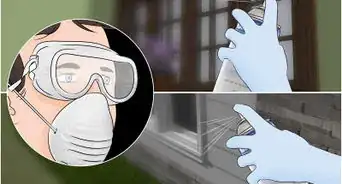
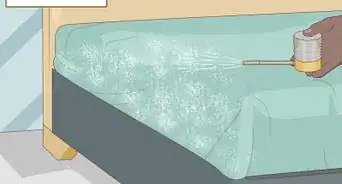
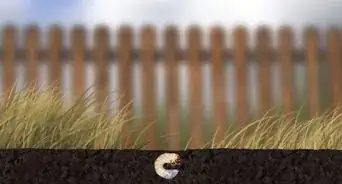
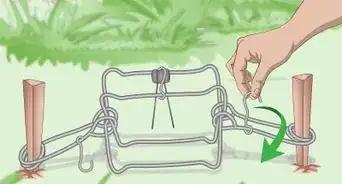
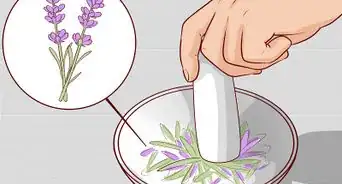
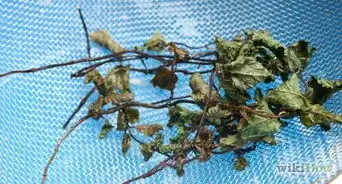
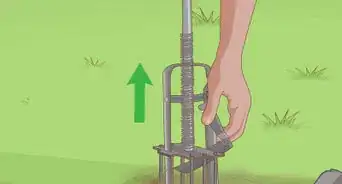
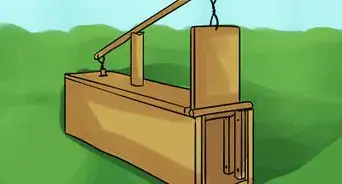

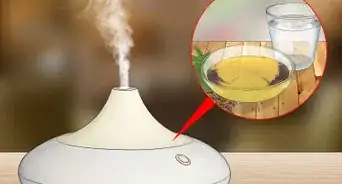
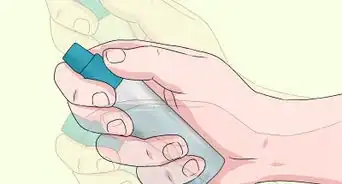
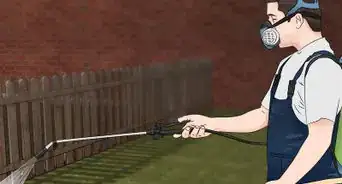
References
- ↑ Chris Parker. Pest Control Specialist. Expert Interview. 21 April 2021.
- ↑ https://www.consumerreports.org/pest-control/how-to-get-rid-of-ants-in-the-house-a3627053544/
- ↑ https://www.pesticideresearch.com/site/pri-resource-centers/pest-mgmt/keeping-kids-safe-and-pests-out/
- ↑ Chris Parker. Pest Control Specialist. Expert Interview. 21 April 2021.
- ↑ Chris Parker. Pest Control Specialist. Expert Interview. 21 April 2021.
- ↑ Chris Parker. Pest Control Specialist. Expert Interview. 21 April 2021.
- ↑ Chris Parker. Pest Control Specialist. Expert Interview. 21 April 2021.
- ↑ Chris Parker. Pest Control Specialist. Expert Interview. 21 April 2021.
- ↑ Chris Parker. Pest Control Specialist. Expert Interview. 21 April 2021.
- ↑ https://www.betterhealth.vic.gov.au/health/healthyliving/pest-control-in-the-home
- ↑ https://www.epa.gov/safepestcontrol/dos-and-donts-pest-control
- ↑ https://www.pesticideresearch.com/site/pri-resource-centers/pest-mgmt/keeping-kids-safe-and-pests-out/
- ↑ Chris Parker. Pest Control Specialist. Expert Interview. 21 April 2021.
- ↑ Chris Parker. Pest Control Specialist. Expert Interview. 21 April 2021.
About This Article

